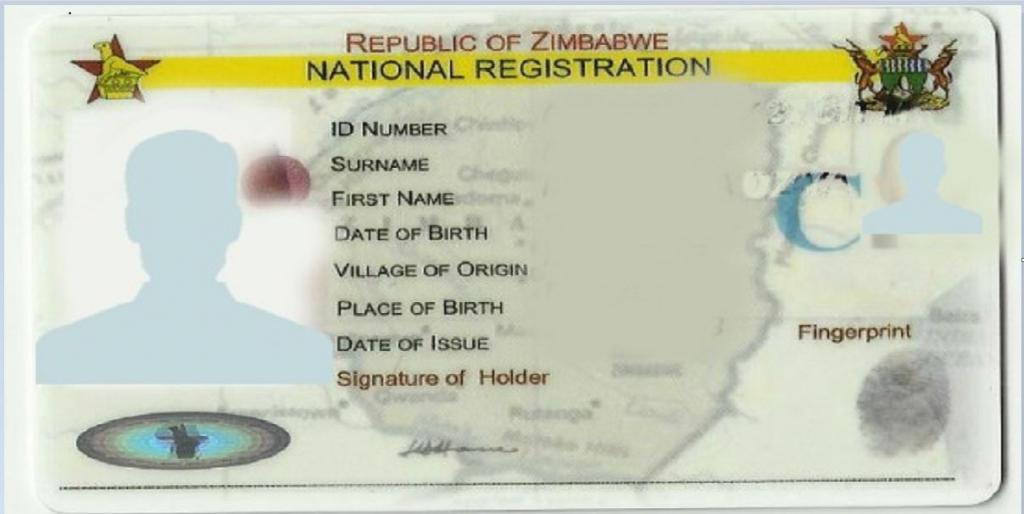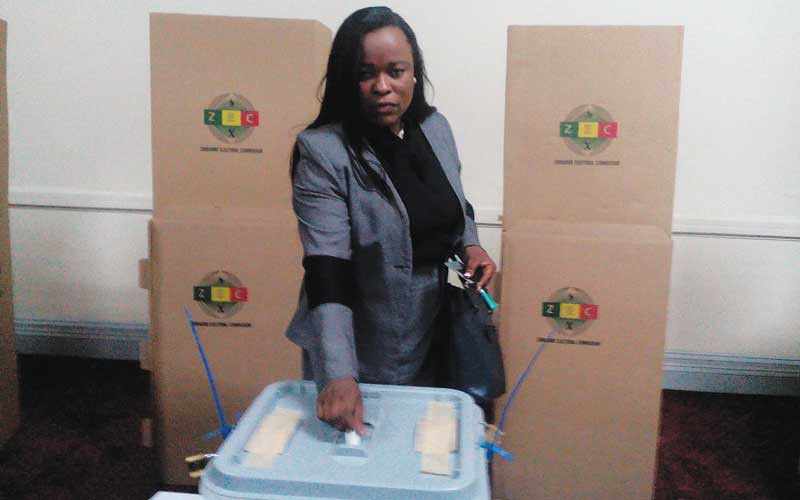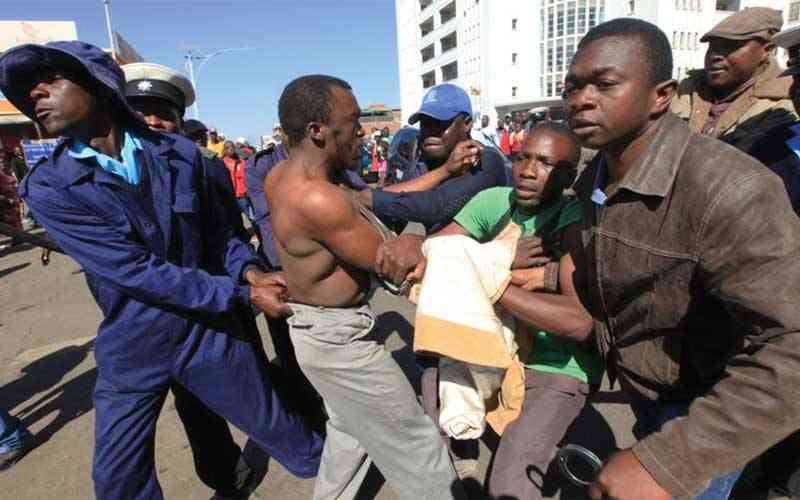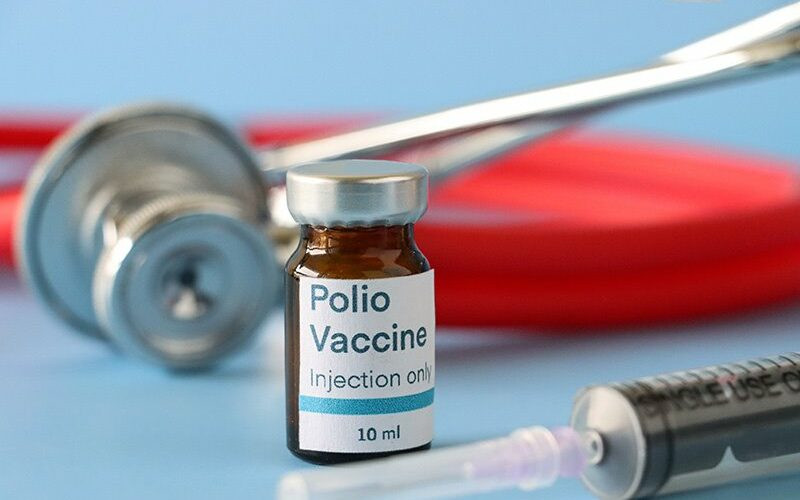
Gukurahundi victims struggle to access IDs ahead of 2023 polls IN the middle of a voter registration blitz ahead of the 2023 national elections, victims of the Gukurahundi genocide are finding it hard to access national identity documents — and consequently left out of the plebiscite.
Some villagers doubt if they will ever obtain a birth certificate.
In April this year, the central government rolled out a mobile civil registry exercise to issue birth certificates, death certificates, and national identity documents, for free.
The central government must go further and scrap many other requirements, especially in areas where people were affected by Gukurahundi.
One witness is enough to testify that someone is a Gukurahundi victim, and deserves an identity document instead of asking for affidavits and death certificates of parents who were killed by the Fifth Brigade.
Victims of Gukurahundi have not been compensated, or given an opportunity to exhume and rebury their loved ones for closure and healing.
The mobile registration exercise is welcome.
But there is concern over some of the requirements which will see Gukurahundi victims remain stateless.
- Chamisa under fire over US$120K donation
- Mavhunga puts DeMbare into Chibuku quarterfinals
- Pension funds bet on Cabora Bassa oilfields
- Councils defy govt fire tender directive
Keep Reading
The Birth and Death Registration Act of Zimbabwe requires one to bring a death certificate in case one of the parents or both are deceased.
The requirements make it difficult for victims, especially those who lost both parents. Some are now forced to use other people’s surnames.
Government must issue a statutory instrument to relax some of their requirements because it is now affecting secondary victims.
A 2019 enquiry by the Zimbabwe Human Rights Commission in Matabeleland says many people failing to access identity documents are Gukurahundi victims.
The Constitution says every citizen has a right to have a birth certificate, national identity card and a passport.
A report compiled by Zimbabwe Peace Project (ZPP) titled Cursed with Statelessness: Consequences of Deprivation of National Identification Documents notes some of the challenges faced by undocumented Gukurahundi victims.
“If nothing is done fast to assist them to acquire birth certificates, passports and national identity documents the curse of statelessness will affect more generations,” ZPP says in its report.
The central government has to address the issue of identity documents for Gukurahundi victims.
People are still traumatised. What needs to be done also is that an independent commission of enquiry has to be set up and the perpetrators brought to book for their heinous deeds.
Meanwhile in 2020, President Emmerson Mnangagwa promised to facilitate easy access to the identity documents after meeting traditional leaders and civic groups in Matabeleland. – Bulletin
Fighting fossil fuels will drown everyone
IT’S no longer prudent to have all or even most infrastructure reliant on traditional sources of power, regardless of — or, maybe, due to — collective humankind’s over-reliance on planet-warming fossil fuels.
But if the universal availability of a renewable-energy alternative, such as mass solar-energy harvesting, would come at the expense of the traditional “energy production companies”, one can expect obstacles, including the political and regulatory sort.
That applies in the West as well as Africa, Asia and the Americas.
If something notably conflicts with long-held and deeply entrenched corporate interests, even very progressive motions are greatly resisted, often successfully.
And, of course, there will be those who will rebut the renewable energy type/concept altogether, perhaps solely on the illogic that if it was possible, it would have been patented already and made a few people superfluously rich.
Meantime, assuming the fossil fuel industry chief executives are not foolish to actually believe that their descendants will somehow always evade the health repercussions related to their industry’s environmentally reckless decisions, I wonder whether the unlimited-profit objective/nature is somehow irresistible to those business people, including the willingness to simultaneously allow an already threatened consumer base to continue, if not be threatened even further?
It somewhat brings to mind the allegorical fox stung by the instinct-abiding scorpion while ferrying it across the river, leaving both to drown.
Still, there must be a point at which the status quo — be it bone-dry-vegetation areas uncontrollably burning, unbreathable city air, or unprecedented high-death-toll weather events — will end up hurting even big fossil fuel’s own bottom-line interests. – Frank Sterle Jr
Lack of mental health information has dire consequences
FOR highly traditional communities, mental health is a bad omen and is often attributed to witchcraft. But the lack of correct information about the challenge has dire consequences.
Lack of awareness on mental health illnesses comes with its dangers.
Communities are not well equipped to know this is a mental health problem and that it can always be treated. Rather, they opt for the notion that it’s witchcraft.
The cultural beliefs tied to mental illnesses are isolating mental health patients.
Unfortunately, there is a tendency to isolate the person such that they roam the villages and eventually pose a danger to others because of the unresolved issue.
We have many cases here of people who have lost their marbles to the point of committing heinous crimes like murder.
There is also a disconcerting phenomenon of violent deaths at the hands of mentally ill persons. The communities in which these people live have a part to play in arresting this tide.
In 2021, a total of 13 murder cases trialled in Hwange were referred for mental examination under section 29 of the Mental Health Act.
Mental evaluations are done in terms of section 29 of the Mental Health Act when a person commits a crime as a result of mental illness.
The Act requires that the accused should undergo psychological evaluation by two medical practitioners who should be government medical practitioners.
There has been a notable increase in murder cases allegedly by mentally challenged persons and the trend is very worrisome.
We encourage guardians and parents of mentally ill persons to take necessary steps towards having their patients rehabilitated at the relevant medical institution without delays.
While some of the offenders are known mental patients, others are only diagnosed as psychologically unstable after committing crimes, reports show.
We believe the increase in cases is due to untreated mental health disorders.
The COVID-19 pandemic is another factor that exposed the country’s poor health system to deal with mental illnesses.
The pandemic exposed a lot of mental health issues among almost everyone. The pandemic has shown how there is need to invest in mental health care and institutions.
Matabeleland North province does not have psychiatric hospitals, and patients have to be referred to Bulawayo’s Mlondolozi and Ingutsheni mental institutions.
Authorities must invest in awareness campaigns to ensure early diagnosis and treatment for persons suffering from any form of mental illness such as depression.
Another cause of this increase is lack of diagnosis and treatment. There are a lot of people suffering from mental health problems, but have not been checked. If you are not going to get treatment then symptoms are going to manifest. – Citizen











